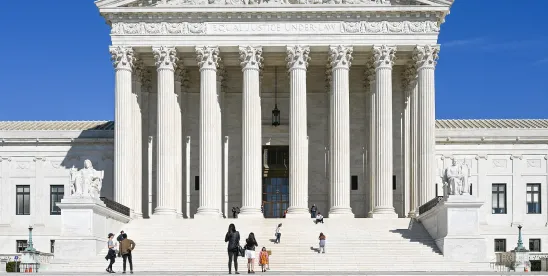Factual Background
The DFS regulates insurance companies and financial institutions operating in New York, with authority to conduct investigations, enforce civil actions, and refer cases for criminal prosecution. The NRA engaged DFS-regulated entities, affiliates of Lockton Companies, LLC, to manage insurance policies offered to its members underwritten by Chubb Limited and Lloyd's of London.
In 2017, prompted by a tip from a gun-control advocacy group, the DFS, led by Vullo, initiated an investigation into one such policy called Carry Guard. It was discovered that Carry Guard provided coverage for intentional criminal acts violating New York law, and the NRA promoted it without the necessary insurance producer license. As a result, Lockton and Chubb suspended Carry Guard, leading Vullo to expand her investigation into other NRA-affiliated insurance programs.
On February 14, 2018, a gunman opened fire at Marjory Stoneman Douglas High School, murdering 17 students and staff members. Following the shooting, the NRA and other gun-advocacy groups experienced intense backlash across the country.
Around that time, Vullo began to meet with executives at the insurance companies doing business with the NRA. On February 27, Vullo met with senior executives at Lloyd’s. There, speaking on behalf of DFS and then-Governor Andrew Cuomo, Vullo “presented [their] views on gun control and their desire to leverage their powers to combat the availability of firearms, including specifically by weakening the NRA.” Compl. ¶ 67.
Vullo told the Lloyd’s executives “that DFS was less interested in pursuing [the insurance infractions described above]” unrelated to any NRA business “so long as Lloyd’s ceased providing insurance to gun groups, especially the NRA.” Compl. ¶ 21; see id. ¶ 69 (alleging that Vullo made it clear to Lloyd’s that it “could avoid liability for infractions relating to other, similarly situated insurance policies, so long as it aided DFS’s campaign against gun groups”). Vullo and Lloyd’s struck a deal: Lloyd’s “would instruct its syndicates to cease underwriting firearm-related policies and would scale back its NRA-related business,” and “in exchange, DFS would focus its forthcoming affinity-insurance enforcement action solely on those syndicates which served the NRA and ignore other syndicates writing similar policies.” Compl. ¶ 69.
Subsequently, on April 19, 2018, Vullo issued guidance to DFS-regulated entities titled “Guidance on Risk Management Relating to the NRA and Similar Gun Promotion Organizations.” This guidance urged companies to assess and manage risks arising from dealings with the NRA or similar organizations, review their relationships with such entities, and take actions to promote public health and safety.
Cuomo and Vullo also issued a joint press release endorsing the guidance, urging all insurance companies and banks operating in New York to discontinue arrangements with the NRA. Following this, DFS entered into separate consent decrees with Lockton, Chubb, and Lloyd’s, wherein the insurers admitted violations of New York’s insurance law, agreed not to offer any NRA-endorsed insurance programs — even if lawful — and agreed to pay significant fines.
Analysis
The Court held that government officials are permitted to express their opinions and critique specific beliefs in an effort to persuade others. However, the Court emphasized that government officials are prohibited from leveraging their official authority to suppress expression that they disfavor. This principle stems from the First Amendment's Free Speech Clause, which the Court held prohibits discrimination based on viewpoints. Though the Free Speech Clause does not directly apply when officials engage in their own expressive conduct, the Court stated they are still bound by the restriction on using governmental power to stifle disfavored expression.
The Supreme Court’s ruling in Bantam Books, Inc. v. Sullivan, 372 US 58 (1963), delved into the delicate balance between permissible persuasion and impermissible coercion. The Court held that government officials cannot wield threats of legal sanctions or other forms of coercion to repress disfavored speech. The Court stated that even if an official lacks direct authority to enforce legal sanctions, if their communications reasonably suggest coercion, compliance cannot be considered voluntary.
To assert a violation of the First Amendment through the coercion of a third party, the Court ruled that a plaintiff must plausibly allege conduct that could reasonably be interpreted as a threat of adverse government action to punish or suppress speech. In the present case, the NRA alleges that Vullo coerced DFS-regulated entities into severing ties with the NRA to quash gun-promotion advocacy.
The Court stated that Vullo, possessing regulatory and enforcement authority over insurance companies and financial service institutions in New York, allegedly pressured entities like Lloyd’s to terminate their business relationships with gun groups, including the NRA. The Court held that this alleged pressure included an implicit threat that compliance would shield them from unrelated infractions. The Court concluded that the context of Vullo’s authority renders her alleged communications to be coercive.
The Supreme Court rejected the Second Circuit’s conclusion that Vullo’s communications constituted permissible government speech and legitimate enforcement actions. The Supreme Court ruled that the Second Circuit had failed to consider the broader context and reasonable inferences in favor of the NRA. The Court held that Vullo’s argument that her actions targeted non-expressive business relationships did not negate the NRA’s claim of coercion aimed at suppressing speech.
The Court stated that the NRA’s allegations raise constitutional concerns regarding the indirect suppression of disfavored speech. Further, while regulation and condemnation of disfavored views are within the bounds of governmental authority, the Court determined that the First Amendment prohibits officials from selectively utilizing their power to punish or suppress speech.
The Court stated that the First Amendment extends protection not only to the freedom of expression but also to the freedom to receive information and ideas. The Court emphasized that viewpoint discrimination, characterized by governmental bias in favor of one side of a debate while suppressing opposing viewpoints, directly undermines this protection and disrupts the exchange of ideas by stifling dissent.
Regarding Vullo’s regulatory and enforcement authority over insurance companies and financial service institutions in New York, the Court held that it endowed her with significant leverage in her alleged attempts to pressure entities like Lloyd’s to sever ties with gun groups, such as the NRA. The implicit threat that compliance would safeguard these entities from unrelated infractions suggests a coercive intent behind Vullo’s actions.
Although government officials have a legitimate interest in regulating certain activities, the Court stated that they must do so in a manner consistent with the First Amendment’s protection of free speech, including refraining from selectively targeting individuals or groups based on their viewpoints.
The Supreme Court confirmed that government officials cannot use their authority to silence dissenting viewpoints.




 />i
/>i

